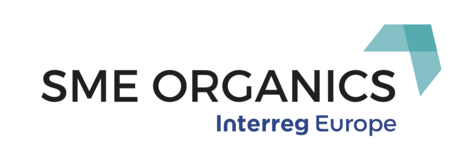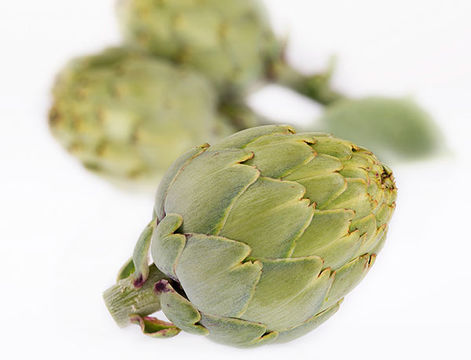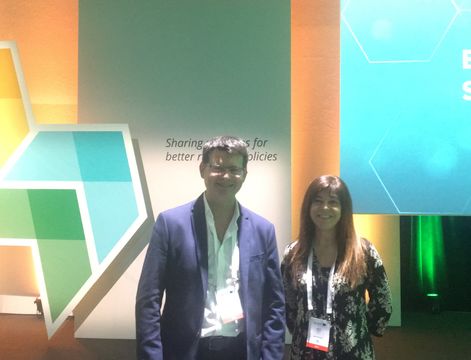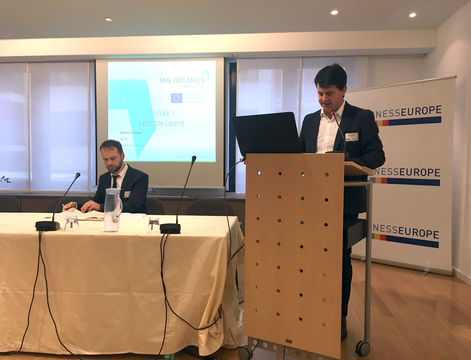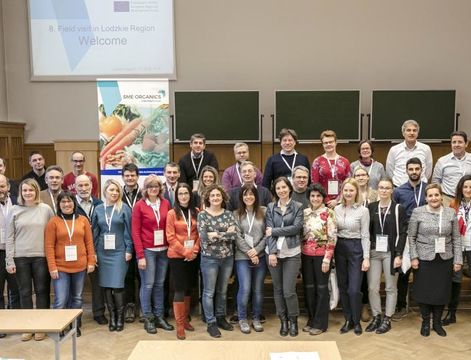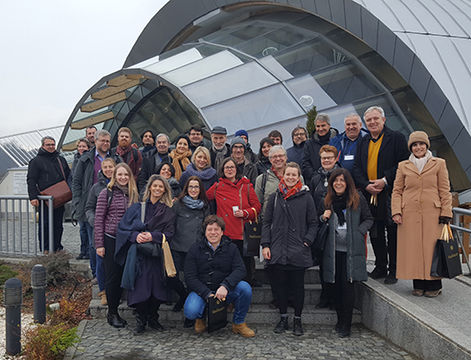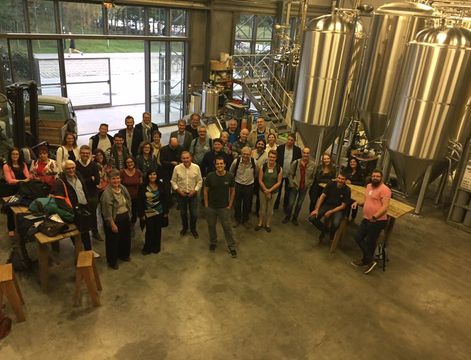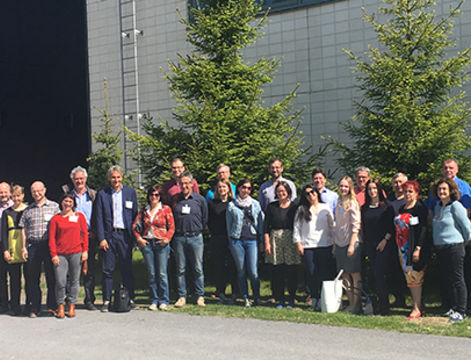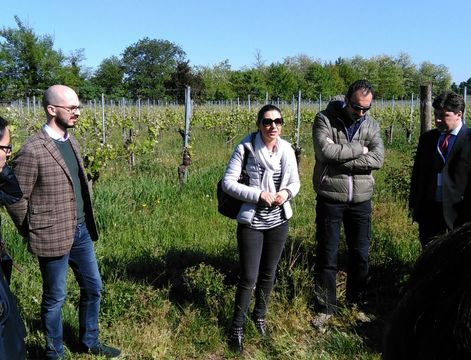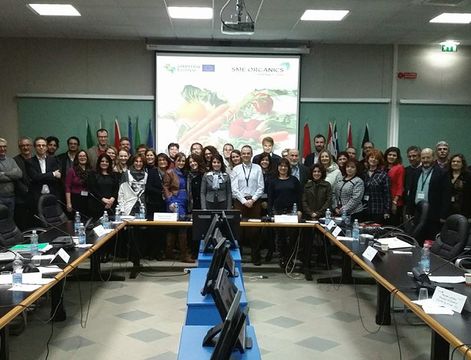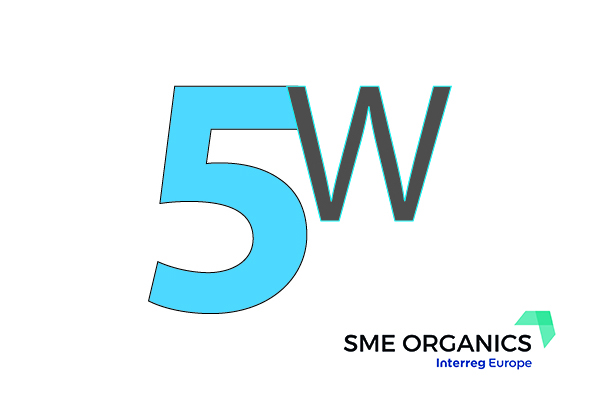The Second Interregional Field Visit of SME Organics Project took place in Navarra (Spain) on 30th November - 1st December hosted by Department of Rural Development, Environment and Local Administration of the Government of Navarra and Regional Development Agency of Navarra (SODENA), in collaboration with INTIA. The visit aimed at knowing real experiences of producers, distributors and associations working in organic production and included the participation of more than fifty project partners and stakeholders.
Good Practices by local stakeholders
The morning session started with two presentations, The Organic Sector in Navarra and Support to research, training and advice by INTIA, and then we heard the life experience of three local stakeholders: Jauregia, Trigo Limpio and Landare.
The Valley of Ultzama, in the north-west of Navarre just 25 kilometres from Pamplona, it is an idyllic valley of green meadows, surrounded by oak and beech woods and dotted with tiny, impeccably-kept villages. There, in a very small village named Aniz, Azkarate family have tended their herds since centuries. A few years ago the Azkarate brothers, Mikel and Aitor, began a process of transforming their farm that now allows them to produce milk in an organic way while maintaining the natural values of their land. Actually they have a total organic production producing daily: cheese, yogurt, fresh milk and ice cream. Furthermore they distribute their products by themselves under the trade name of Jauregia through direct sale (vending machine in Elizondo, local markets, consumer groups, internet and schools); retail sale (small shops and specialized stores) and experiential marketing (Km 0, guide visits, etc).
Trigo Limpio started like a cooperative, with a lot of passion but not much management, and then they failed. After a transition years renting a meat processing plant and learning about the profession of butcher, in 2013 built their meat processing plant in Aribe. Gabriel Errandonea shared with the attendance the barriers to organic farming: difficulties to apply the CAP, difficulties to use non OGM cereals, and taxes to organic production. They have an online store and sell veal, lamb, foal meat, potatoes, kiwis and walnuts.
And finally Patricia Andrés talked about Landare case, a Consumers Association of organic products. They are almost 3.000 members and their principles are: committed on values and benefits for the community (agroecology and responsible consumption); direct relation with producers and proximity; transparent prices and clear information; shopping basket (variety, quality and fair prices); and participative organization, motivation and effective management. In the buying process, they have 122 organic producers with long lasting relationships and the 67% products are from Navarra. Patricia concluded exposing their demands: public policies to promote organic production; support to small producers; legislation on GMP; and taking into consideration of the alternative distribution channels by the public Administration and equal treatment.
Visiting competitive organic SMEs - Selected success stories
After a lunch based on organic products, the participants visited three organic SMEs success selected stories.
The origin of Conservas Pedro Luis goes back to 1968. Pedro Luis and his wife dulled the fruits they collected from their lands. They made Peppers of the Piquillo of Lodosa and Asparagus of Navarre. Then the range was extended to more than 60 products that are made today. Their son, as well Pedro Luis, keeps alive the quality spirit of the beginning. All of his products are made in those facilities whose raw material comes from farmers in the area with a high commitment to quality and food safety.
Gumendi was born from the union of two farmers dedicated to the ecological production of fruits and vegetables in the year 1992. As there were no marketing structures at that time, and in response to this need, they faced the idea of creating a cold store that could give this service not only to their production but also to that produced by other farmers. Actually they have a general store for the conversation and comercialization of fresh fruits and vegetables with 5000 m2 capacity, seven fridges with controlled atmosphere and four fridges with normal atmosphere.
With a longstanding grape-growing tradition behind them, brothers Raúl and Jorge Ripa completed construction work on their new bodega at the beginning of 2003. This 2,400 m2 building was designed and equipped to obtain high quality wines. It has an "Organic Wine Interpretation" classroom where an audiovisual session explains all the facts about organic viticulture. The bodega markets young and Crianza wines under the "Quaderna Vía" label, all of which are made from grapes from their own vineyards following organic farming systems.
The Second Interregional Field Visit of SME Organics Project included in addition two conferences and four parallel workshops.
